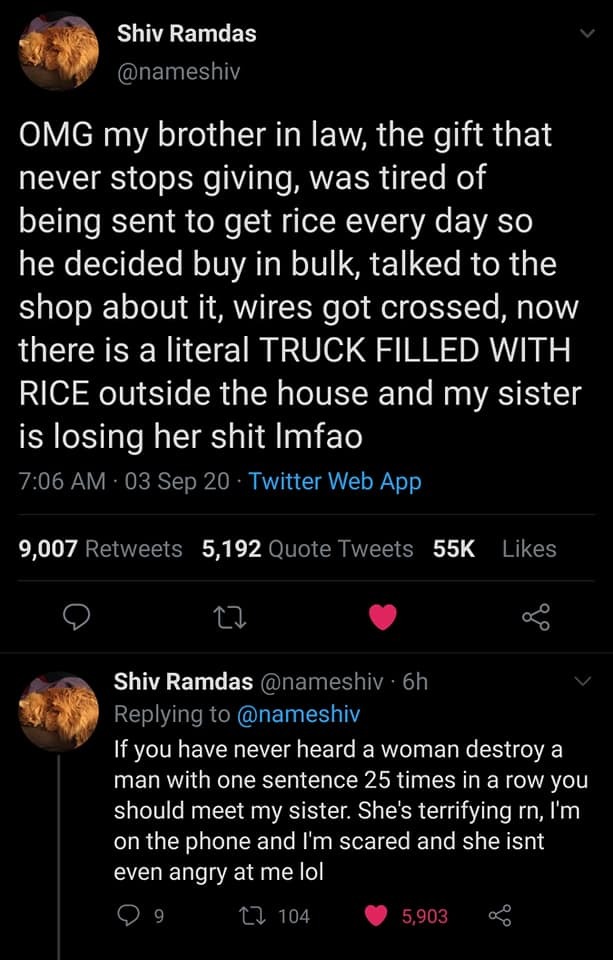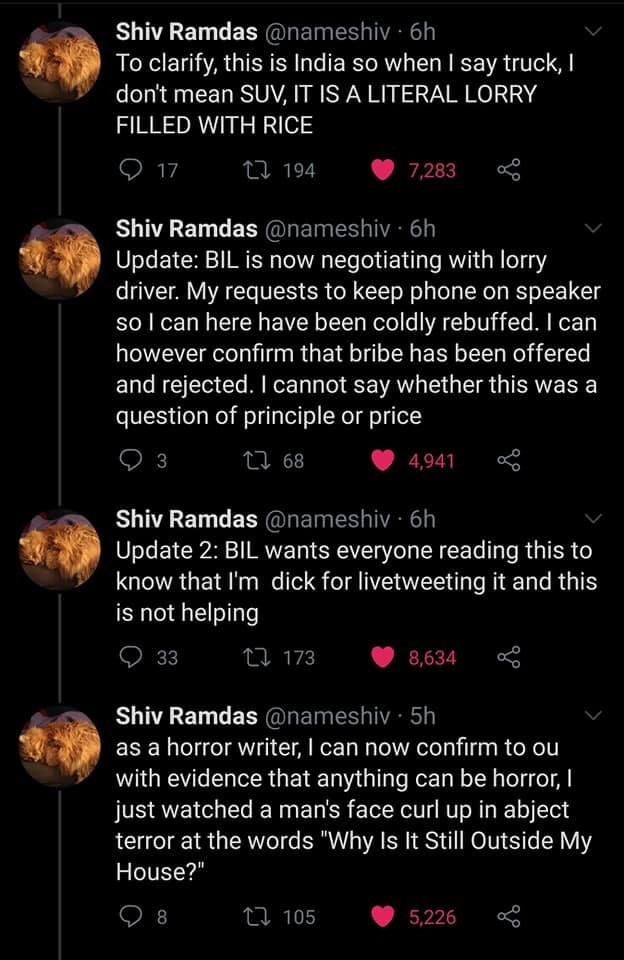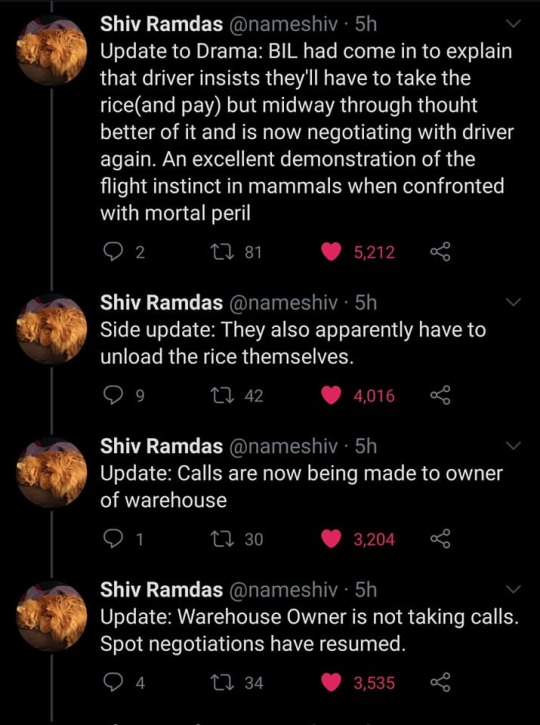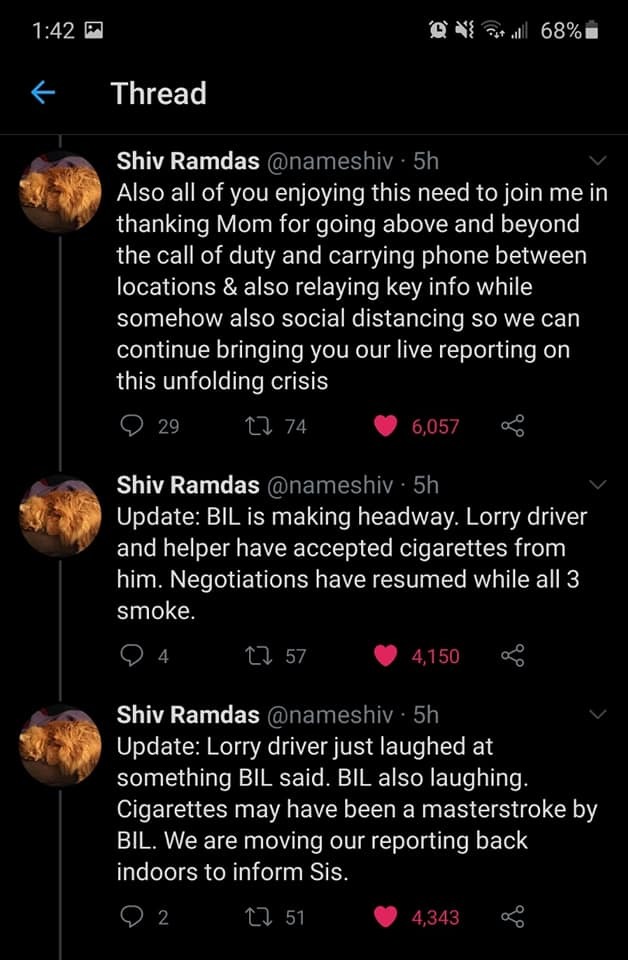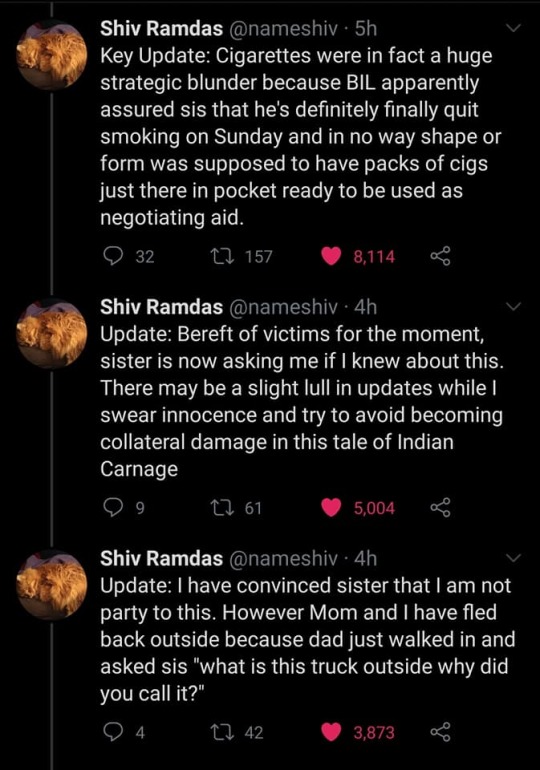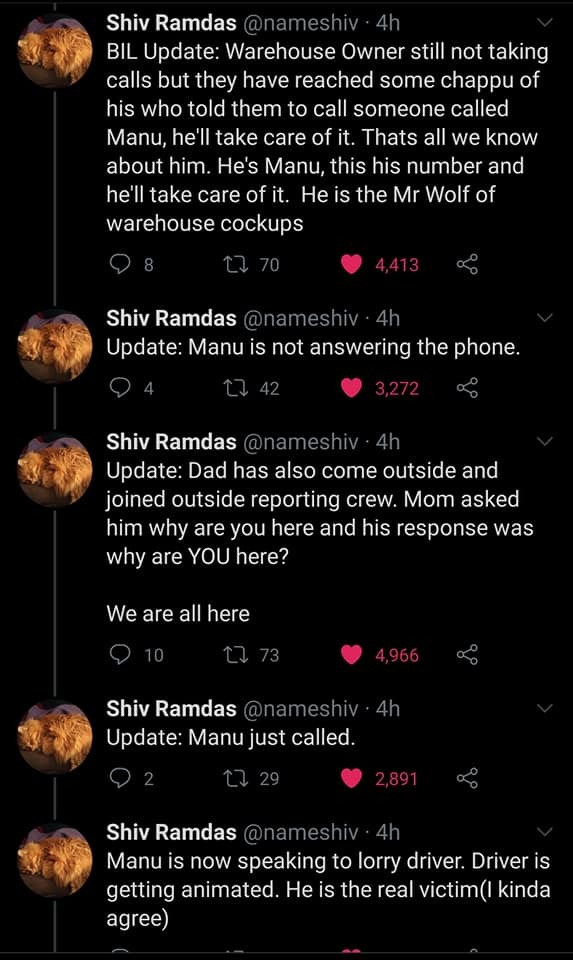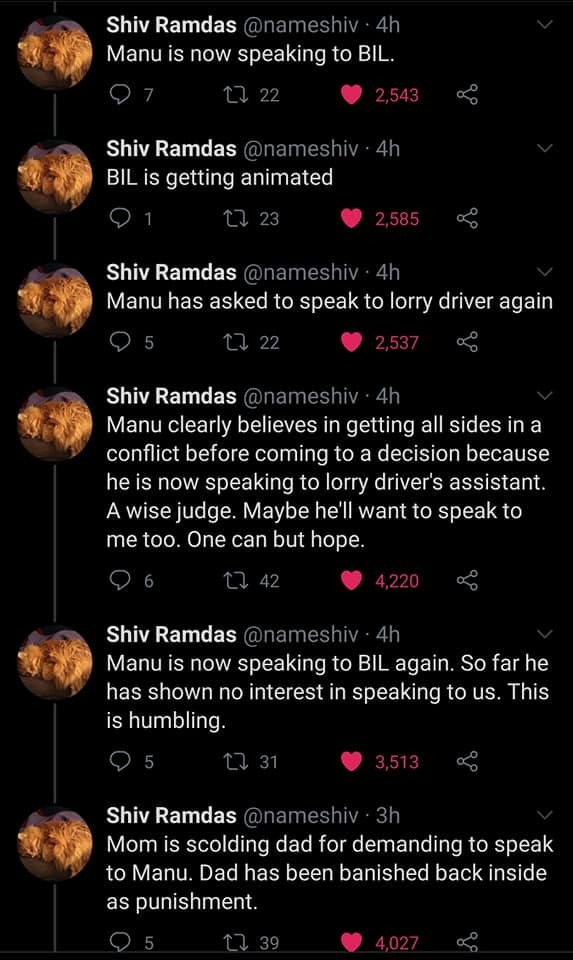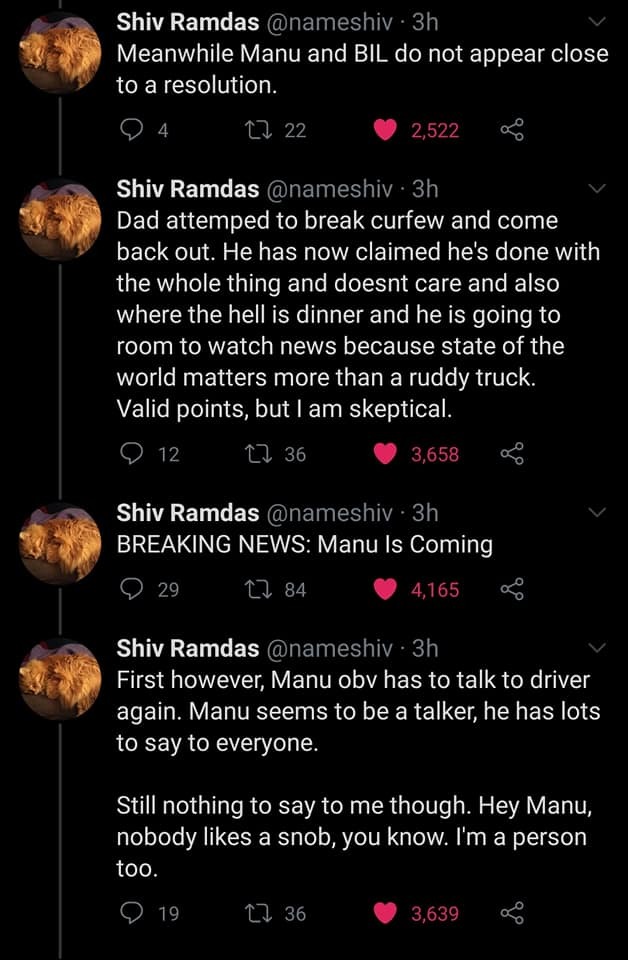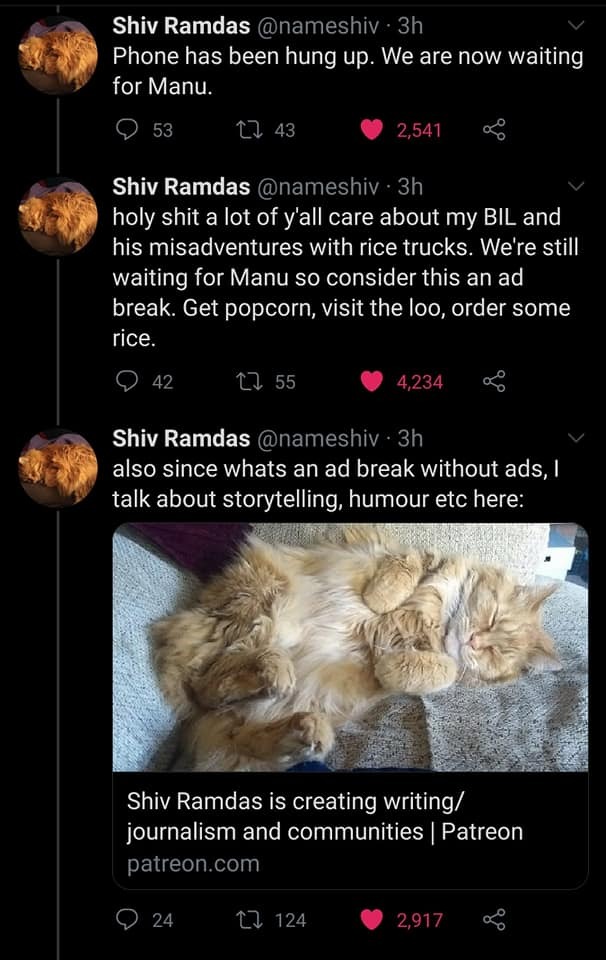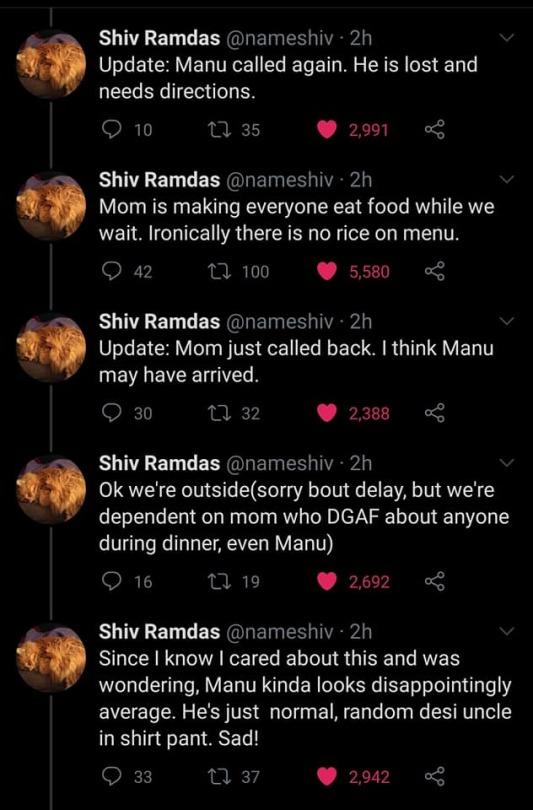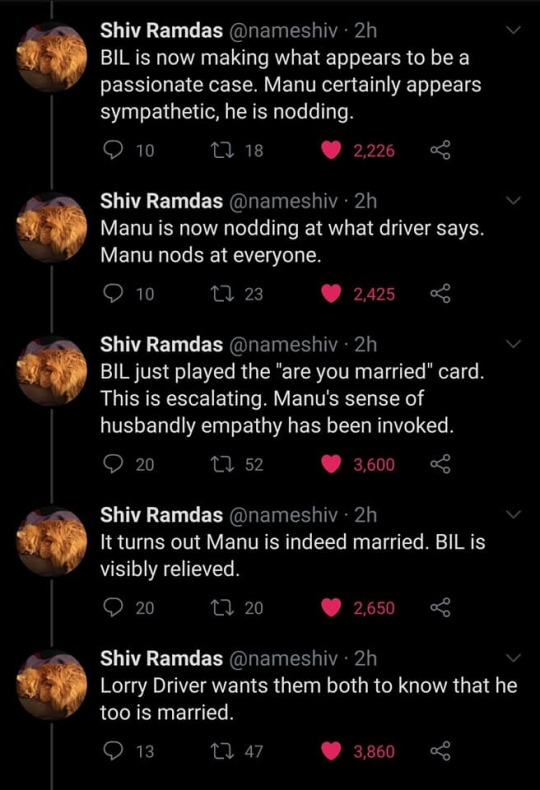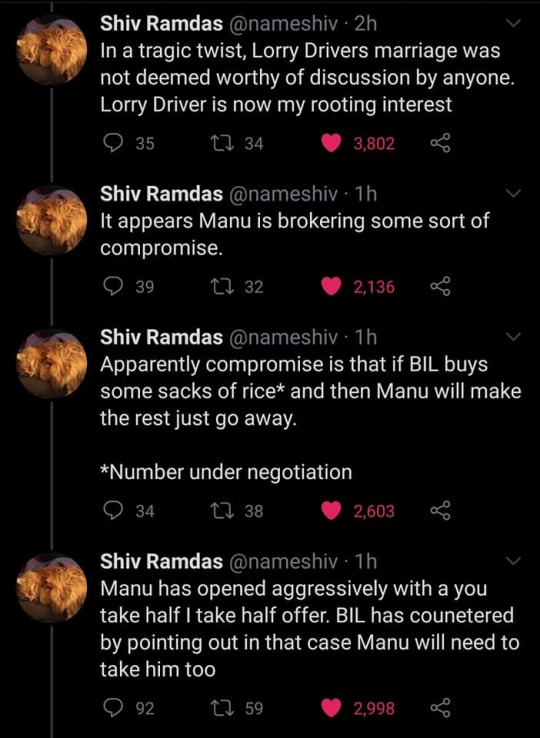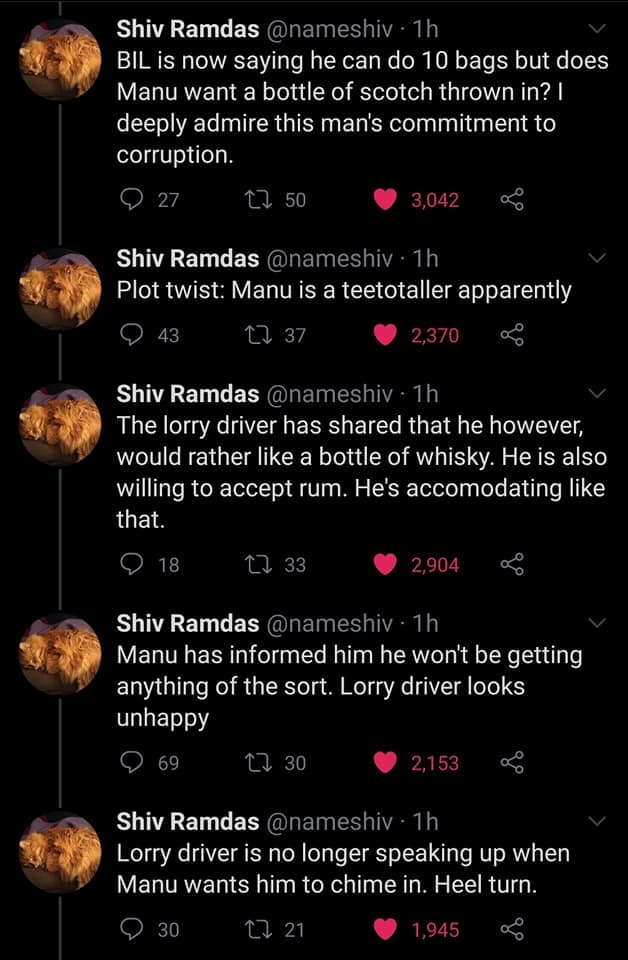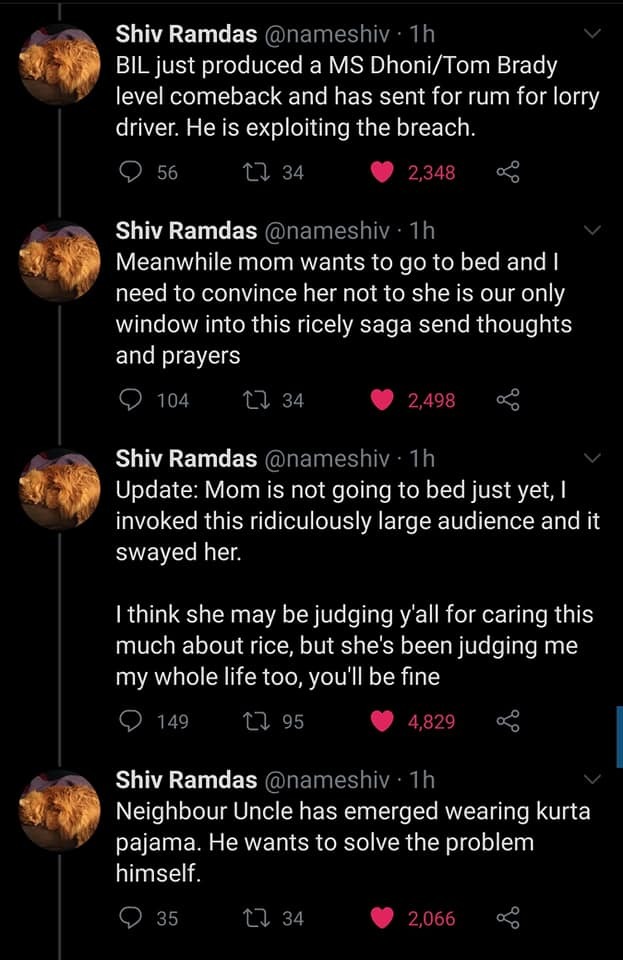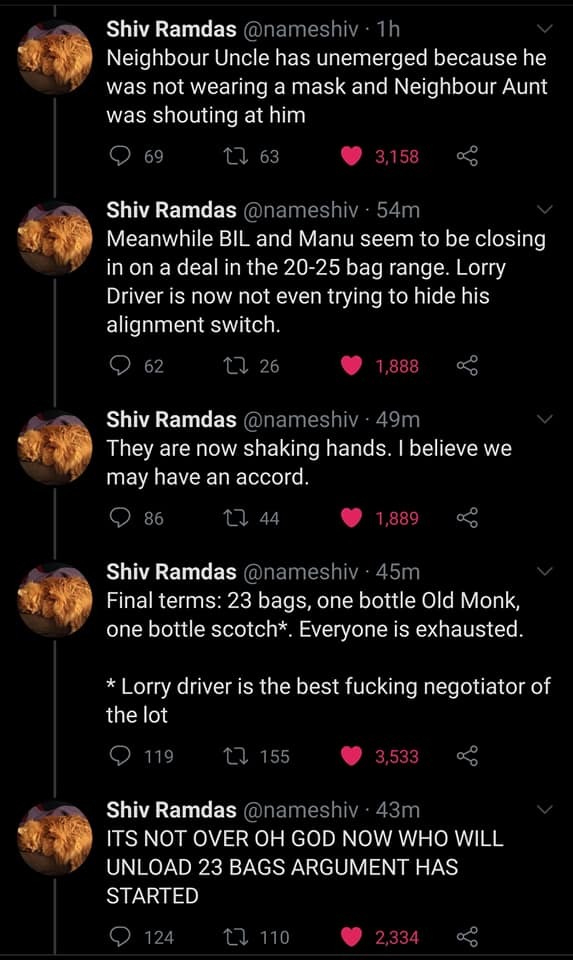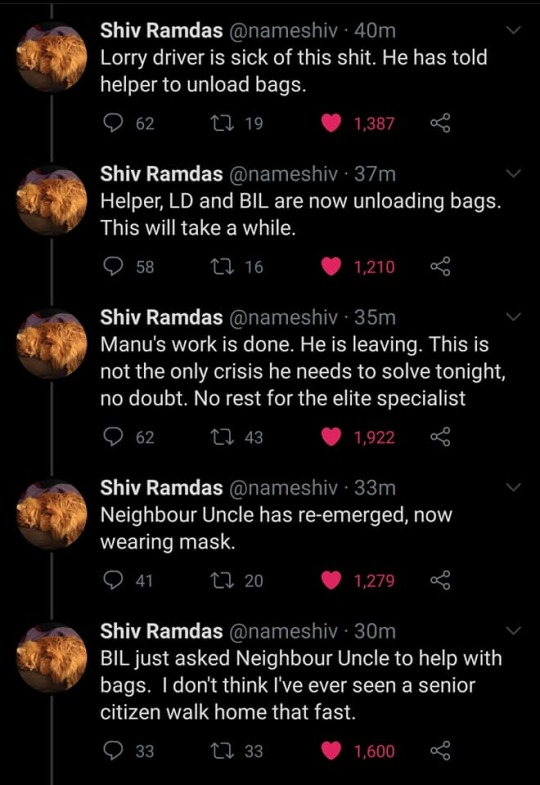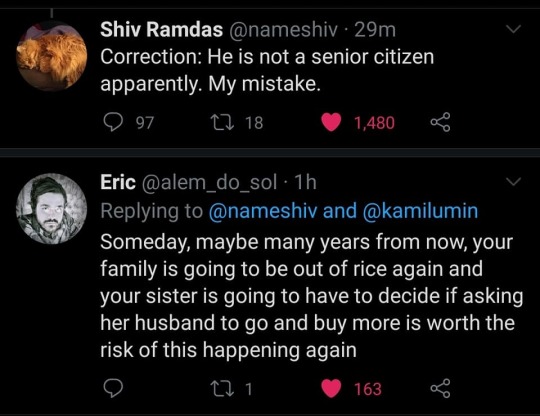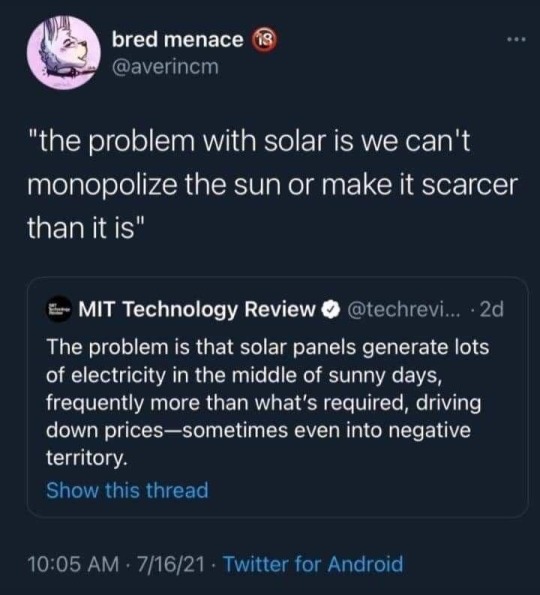thedevotedpaladin
20 posts
Don't wanna be here? Send us removal request.
Photo
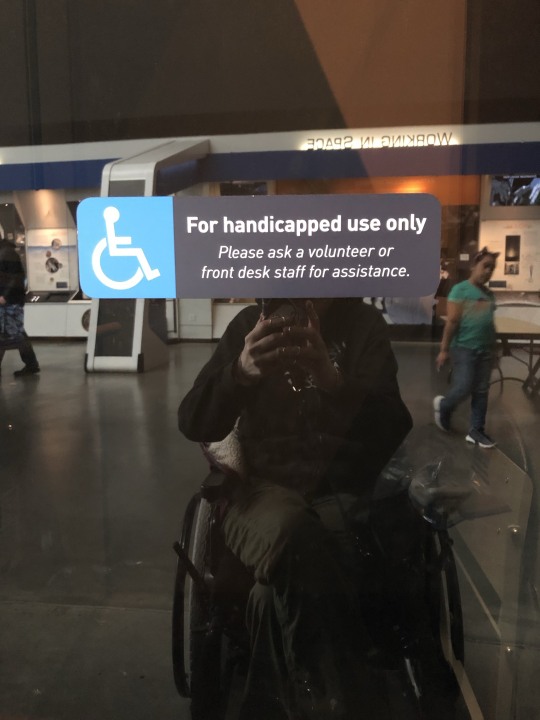
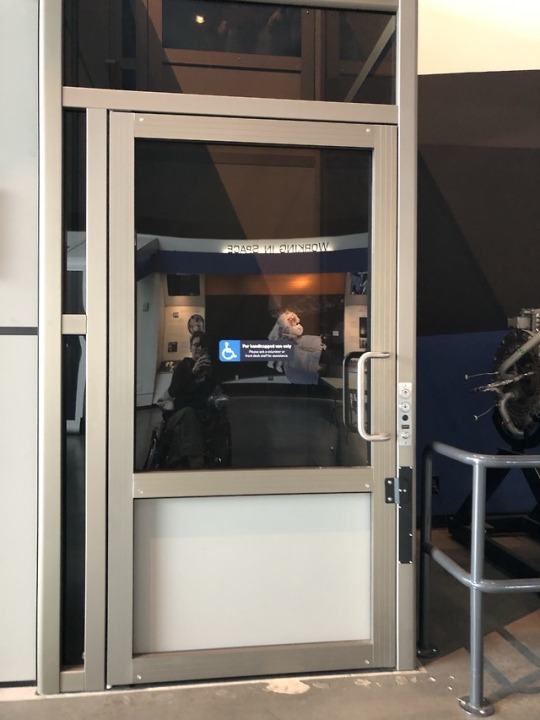
Locking your wheelchair lift and requiring disabled people to find an employee to unlock AND OPERATE it is a direct violation of the ADA.
“The [ADA] Standards require ‘unassisted’ entry and exit from lifts (§410.1). Situations in which platform lifts are locked and require users to request or retrieve a key for operation will not satisfy this requirement for independent operation.”
“Attendant operation, although recognized by the ASME A18.1 Standard, is expressly prohibited by the ADA Standards. Platform lifts must provide ‘unassisted entry and exit from the lift’ (§410.1).”
(Source)
Smells like a lawsuit waiting to happen…
113K notes
·
View notes
Text
I've recently caught myself thinking "Wow, that sounded so much better out loud then it did in my head."
I have thus come to the conclusion that I have been somehow replaced with an imposter. Some competent and healthy version of myself. If you find the real me, quivering and depressed in the dark, be kind to them. They could probably use the support
1 note
·
View note
Text
I've actually been thinking of this concept a lot lately because of one of the Fantasy worlds I've been building. In this world sign language became the global trade language. Now this happened in world for more economic reasons, but in a world like that deafness feels like it would be a lot closer to having bad eyesight in ours than it would you Irl deafness. This didn't develop specially for the deaf to flourish, but they'll thrive so much more easily in a world where their main means of communication is something every child is expected to learn in school.
Disability is highly dependent on environment, and all those who have the time and energy to do so should help work on changing ours.
I was just thinking again last night about how disability is to a great extent dependent on the environment and whether it is constructed to be accessible.
For instance, I have just AWFUL eyesight. But it is (mostly) corrected with glasses and contacts. Therefore, in most day-to-day tasks, my eyesight is not a problem at all. I have a “pathology”, but it does not disable me.
But if you plucked me, a la Mary-Sue, out of our world/time and plunked me in Middle-earth, I’d be SCREWED. My contacts would dry out very quickly without contact solution, I wouldn’t be unable to get more, and I would be left nearly blind. Maybe if I was lucky, somebody would have advanced enough lens technology to make me glasses, but even then, they would probably be prohibitively expensive, not quite my correct prescription, and if I broke them I would once more be screwed. I am not disabled by my eyesight only because I live in an environment that makes assistive technologies (glasses, contacts) accessible to me.
Wheelchair-users do not have to be disabled if they live in environments that are made to be accessible to them. The deaf do not have to be disabled if they live in environments that provide assistive technologies and easy modes of communication with hearing people. These differences do not have to be disabling: they are only disabling because we haven’t yet put in the work (like we have with corrective lenses) to eliminate their disabling effects.
Hey, let’s take it farther. Imagine a world where children learn early about autism spectrum disorder and the world is geared to allow for that difference.
Imagine a world where life-preserving medications like insulin and epipen are low-cost or free.
Imagine a world that includes and assists people who cannot read for various reasons without judging them.
Imagine a world where fat people can easily and cheaply access clothing that fits them and where doctors treat them the same way they treat their skinny patients.
Imagine a world where growing old doesn’t exclude you from society.
All these things are possible in our world. We just haven’t done the work yet to make them real.
None of these conditions (ASD, allergies, diabetes, reading difficulties, fatness, aging) is in and of itself necessarily a disability. The problem is that our society disables some people.
We are making strides in some areas. More and more people are learning about mental health concerns, for instance, are stigmatizing them less, are issuing content warnings to help people, are talking about the issue.
We ARE making progress. But more in some areas than others.
I think the challenge to us might be: when someone mentions how they are being excluded or disabled in an area of their life, think about how that disability could be eliminated by making the environment accessible. Try to figure out the best way to do that (including the people being disabled in the conversation!) and work toward that change.
276 notes
·
View notes
Note
I think I know what those two are up to, but I can never be sure. They're tricksy that way
Ace culture is feeling great knowing you are ace, proud even, but now looking at the romantic and gender part of yourself and say "now, what am i supposed to do with you two"
322 notes
·
View notes
Text
I do this too as an ADHD person. I have a few standbys that I often go to that I've had for years too, some of which kind of confuse me as to how they got so prominent.
look i would LOVE to fall asleep but sadly my brain is still waiting for Tonight’s Fantasy Scenario so i can spend 60-90 minutes daydreaming quietly in the dark while waiting for the gaping abyss of sleep to swallow me whole, i have a ROUTINE
#I also sometimes just naturally Lucid dream#and I think these Fantasies can impact those Lucid dreams#I don"t know for sure I don't lucid dream enough to test these things
21K notes
·
View notes
Text
Note to reader: this post is mostly one fairly longwinded example of one concept, skip to the tl;dr if that helps you out
An important note to add to this too I think is that what is intended to be kind will not always be perceived as such. Thinking of context is important. For example, the reason I stumbled across this post to begin with is that I had written something for you Gaud, that I had originally meant to send as an ask. As best as I can tell you have asks turned of so I was looking for alternate ways I could send it to you that would work with how it was already written. The basic concept of the post was that I'd started noticing myself thinking more positively about myself because of concepts and techniques I've learned from your posts. I figured you'd feel pretty good about yourself too if you knew that. (I know that this is hardly the first time someone told you that, but it feels like the sort of thing that feels good regardless of how many times you've heard it.) I didn't write it in a direct "hey you made me a healthier person" kind of way. Because that wasn't the way it came into my head originally. The way it did was basically that "wouldn't it be fun to phrase this post as if Gaud making me thinker kinder thoughts about myself was some kind of crime" partially because that's how my mind works, partially because that kind of shitpost is pretty normal for your blog. And partially because I thought phrasing it like that would make it easier for you to interact with. You could feel good about yourself without having to put a lot of thought into how to respond in a way that was funny or profound or heartfelt as the post was set up to give you an obvious response.
The actual point I'm trying to make though is that I wrote a post that probably wouldn't have seemed kind in a lot of contexts, but was written that way for kind reasons. It was somewhat accusatory and hostile, but that's because it was setting Gaud up to make a joke about those things. I know enough about Gaud from reading their blog that I figured they'd read the intended message from it and feel good anyway. If I sent a similar message to someone else it could have been easily misinterpreted. For all I know Gaud would have read it wrong too. I'll never know for sure now that I've butchered it's presentation here.
Tl;dr knowing when something is kind involves a lot of context. We can never know all (or even most) of that context for sure, but we can do our best to make sure we at least try.
you know how some parents do that toxic thing where they don’t notice or reward kids for improving their behavior, but every screw-up gets remarked upon and used to inflict shame? so you’re stuck in that awful cycle where there are no rewards, only the inevitability of eventual punishment?
53K notes
·
View notes
Text
please stop treating the word neurodivergent like it means the overlap between autism and adhd
91K notes
·
View notes
Text
Your mental illness is lying to you.
You are not stupid. You are not ugly. You are not worthless. You are not weak. You are not a burden. Your mental illness is lying to you.
490K notes
·
View notes
Text
Read this:
“I want to tell a story about an invisible elephant.
Once upon a time, when I was in graduate school at UCSB, the department of religious studies held a symposium on diasporic religious communities in the United States. Our working definition for religious diaspora that day was, “religious groups from elsewhere now residing as large, cohesive communities in the US.” It was a round table symposium, so any current scholar at the UC who wanted to speak could have a seat at the table. A hunch based on hundreds of years of solid evidence compelled me to show up, in my Badass Academic Indigenous Warrior Auntie finery.
There were around 15-20 scholars at the table, and the audience was maybe fifty people. There was one Black scholar at the table, and two Latinx scholars, one of whom was one of my dissertation advisors. The other was a visiting scholar from Florida, who spoke about the diasporic Santería community in Miami. But everyone else at the table were white scholars, all progressively liberal in their politics, many of whom were my friends. Since there was no pre-written agenda, I listened until everyone else had presented. I learned a tremendous amount about the Jewish diaspora in the US, and about the Yoruba/Orisha/Voudou, Tibetan Buddhist, Muslim, and Hindu communities, and even about a small enclave of Zoroastrians.
As they went on, I realized my hunch had been correct, and I listened to them ignore the elephant, invisible and silent, at that table.
So I decided to help her speak the hell up. “Hello, my name is Julie Cordero. I’m working on my PhD in Ethnobotany, Native American Religious Traditions, and history of global medical traditions. I’d like to talk about the European Catholic and Protestant Christian religious diaspora in the United States, as these are the traditions that have had by far the greatest impact on both the converted and non-converted indigenous inhabitants of this land.”
Total silence. And then several “hot damns” from students and colleagues in the audience. I looked around the table at all the confused white faces. My Latinx advisor slapped his hand on the table and said, “Right!!?? Let’s talk about that, colleagues.”
The Black scholar, who was sitting next to me, started softly laughing. As I went on, detailing the myriad denominations of this European Christian Diaspora, including the Catholic diocese in which I’d been raised and educated, and the brutal and genocidal Catholic and Protestant boarding schools that had horribly traumatized generations of First Nations children, and especially as I touched on how Christians had twisted the message of Christ to try and force people stolen from Africa to accept that their biblically-ordained role was to serve the White Race, her laughs grew more and more bitter.
The Religious Studies department chair, who’d given a brilliant talk on the interplay between Jewish and Muslim communities in Michigan, stopped me at one point, and said, “Julie, I see the point you are so eloquently making, but you’re discussing American religions, not religious diasporic communities.” I referred to the definition of diaspora we had discussed at the start of the discussion, and then said, “No, Clark. If I were here to discuss religions that were not from elsewhere, I’d be discussing the Choctaw Green Corn ceremony, the Karuk Brush Dance, the Big Head ceremonial complex in Northern California, the Lakota Sun Dance, or the Chumash and Tongva Chingichnich ritual complex.”
It got a bit heated for a few moments, as several scholars-without-a-damn-clue tried to argue that we were here to discuss CURRENT religious traditions, not ancient.
Well. I’ll let you use your imagination as to the response from the POC present, which was vigorously backed by the three young First Nations students who were present in the audience (all of whom practice their CURRENT ceremonial traditions). It got the kind of ugly that only happens with people whose self-perception is that they, as liberal scholars of world cultures with lots of POC friends and colleagues, couldn’t possibly be racist.
Our Black colleague stood and left without a word. I very nearly did. But I stayed because of my Auntie role to the Native students in the audience.
I looked around at that circle of hostile faces, and waited for one single white scholar to see how unbelievably racist was this discursive erasure of entire peoples - including my people, on whose homeland UCSB is situated.
Finally, a friend spoke up. “If we are going to adhere to the definition of diaspora outlined here, she is technically correct.”
And then my dear friend, a white scholar of Buddhism: “In Buddhist tradition, the Second Form of Ignorance is the superimposition of that which is false over that which is true. In this case, all of us white scholars are assuming that every people but white Americans are ‘other,’ and that we have no culture, when the underlying fact is that our culture is so dominant that we’ve deluded ourselves into thinking it’s the neutral state of human culture against which all others are foreign. Even the Black people our ancestors abducted and enslaved we treat as somehow more foreign than ourselves. And, most absurdly, the peoples who are indigenous to this land are told that we belong here more than they do.”
People stared at their hands and doodled. The audience was dead quiet.
And you know what happened then? The elephant was no longer invisible, and my colleagues and I were able to have a conversation based on the truths about colonialism and diaspora. We were THEN able to name and discuss the distinctions between colonial settlements and immigrant settlements, and how colonial religious projects have sought to overtake, control, and own land, people, and resources, while immigrant and especially refugee diasporic communities simply seek a home free from persecution.
As we continue this national discussion, it is absolutely key to never, ever let that elephant be invisible or silent. You are on Native Land. Black descendants of human beings abducted from their African homelands are not immigrants. European cultures are just human cultures, among many. And the assignation of moral, cultural, racial superiority of European world views over all non-Euro human cultures is a profound delusion, one that continues to threaten and exterminate all people who oppose it, and even nature itself.
I hope that this story has comforted the afflicted and afflicted the comfortable.”
- Julie Cordero-Lamb, herbalist & ethnobotanist from the Coastal Band of the Chumash Nation
54K notes
·
View notes
Text
I just physically sighed and said that I'm too exhausted to deal with this in response to an ableist comment made by someone in a conversation that I was merely mentally playing out in my head
I think I can confirm I am far too exhausted to deal with ableism irl right now.
2 notes
·
View notes
Text
I know this has already been talked about by people with larger platforms than me, (like 'strange æons' on youtubd for example) but the way the "Tumblr is a dumpsterfire" is said so much without anything else being said beyond those words bothers me, even though they are somewhat true.
I really like Tumblr as a platform.
I like how it's set up in a way that has lot's of ways of saving and interacting with posts. (Rebloging with an addition, rebloging without an addition, adding a note, adding a tag, liking). It means I can interact with a lot more posts than I could with less options, and made the platform more useable for when I wasn't super comfortable with most of those options.
I like how easy it is to come across new viewpoints, ideas, and niche cultures. (Granted that means I come in contact with some toxic or misleading ones). I haven't had near as much issue avoiding toxic communities as a lot of other people have, and I've been introduced to a lot of positive communities and support.
I won't pretend that Tumblr doesn't have issues. From what I understand it's blind accessibility is still terrible. Despite not encountering too many toxic communities, some of those I have come across hurt me pretty badly (namely the Ace Discourse of a couple years ago). Plus issues like how Tumblr treats sex workers. Saying "Tumblr is a Dumpsterfire" or even "Tumblr is a dumpsterfire, but we love it anyway" does nothing to address any of the real problems Tumblr has.
I'm not saying "Tumblr is a perfect platform" I'm just saying the the meme "Tumblr is a Dumpsterfire" ignores a lot of why me and probably a big percentage of you reading this like this platform enough to keep using it. And while, yes, it is a meme and doesn't need to contain an essay's worth of nuance; it still gets said unchallenged a lot more than I think is healthy. Especially as saying it could drive away new users who could make Tumblr a better community.
Tl;dr Saying "Tumblr is a dumpsterfire" ignores what's good about Tumblr, and does nothing about the bad. Even if it can be a fun meme.
#There should probably be some tags on here for acessobility#i don't know enough to add them myself#feel free to add them yourself#or reach out to me about adding them
1 note
·
View note
Text
How to deal with kids (without hitting them)
1. The Best Defense is a Good Offense: Be proactive with children’s behavior.
Don’t wait until a child is in the middle of a meltdown in the toiletries aisle of Target. Try to be aware of how different situations and stimuli might affect kids of different ages. A few tips:
Kids, especially toddler age kids, struggle with transitions. Give them a clear time table and stick to it. Give them updates as deadlines approach. “We are leaving the library in 5 minutes.” “We need to go see Grandma in 10 minutes.” “Target will only take 20 minutes.”
Getting toted around by adults can be exhausting and frustrating. Give kids tasks to do. Put them in charge of something. It can be something actually helpful (you get to hold the calculator and keep track of how much money we are spending in the store) or something fun to keep their mind busy (count all the blue things in this aisle.) Talk to your kids. Help them feel involved, instead of just a tote bag.
Model self care and emotional awareness. Kids are often dealing with SUPER new emotions, and may not know how to recognize them, contextualize them, or act on them. Talk through your own emotions, or emotions you think they may be having, and show them how to deal with them. “Yeah, I know, mommy is really sad that we can’t go to the park because of the rain. It makes me feel really bad inside. I think if we color with crayons for a while, I’ll feel better.”
Give kids choices. Obviously, age plays a big part here, but a reasonable, curated set of appropriate choices gives kids a growing feeling of agency and teaches making good choices. “Would you like peas or green beans?” “Penguin Shirt or Turtle Shirt?” “Water or apple juice?” This requires YOU to also speak with and listen to the kids. Always important.
Consistency is very important. Make sure your rules are clear, the reasons are clear, and the consequences are clear BEFOREHAND. Kids really can’t just infer rules out of thin air. They need to be taught the expectations, and then YOU need to keep to them.
Be aware of how the children in YOUR care react to things, and find ways to mitigate “bad” behavior before it happens.
2. “Punishment” is not the goal. Discipline means teaching.
Your goal, as a parent, as a teacher, as a baby sitter, is not to punish kids. Your goal is to help teach kids how to become thoughtful, responsible, and kind people. The entire idea of kids “deserving” bad things because they’ve “been bad” is flawed. If a kid does something “bad”, then we should aim to help them not make that bad choice again.
How?
Identify any immediate stimuli or situation causing the bad behavior and remove/alter it so the behavior stops. This might mean leaving an errand unfinished, a time out, taking away a toy, etc, in order to STOP the behavior that is happening RIGHT NOW.
Talk to the child about why their behavior was “bad.” What bad affects could it have? How does it affect others? What caused it? Kids, even very young kids, can understand complicated things if explained in terms on their level.
Come up with a plan for what to do next time the original stimuli or situation happens. If Timmy tries to take your truck again, what can we do differently? The next time we are in line at the bank, what can we do to make it more fun?
If the child is older, and the offense is more severe, you may feel the need for a tangible consequence. Remember that these should be age appropriate, reasonable, and negotiable. Give kids the ability to reduce their consequence with good behavior, and be willing to modify the consequence if they have a compelling and reasonable request. Listening to kids and being empathetic is not a weakness. It is a sign of respect.
3. Don’t forget that kids are people. Kids are also kids.
Kids will not be perfect angels. You will not be a perfect adult. Sometimes they will be cranky, angry, tired, hungry, selfish, or mean. You can be these things to. One bad day doesn’t mean you are a failure, and it doesn’t mean the kids are a failure. You have to let kids have bad days sometimes. You have to love them anyway and be willing to give it a fresh go tomorrow.
Working with kids is not easy. No one said it would be. But part of working with kids is the obligation to always be thoughtful about our interactions with them- we teach them with everything we do. So we should treat them with all the respect, kindness, thoughtfulness, and patience we want them to learn.
(Here is a clean version of this, without the discourse, slightly updated)
46K notes
·
View notes
Text
Can you please reblog if your blog is a safe place for lesbian, gay, bisexual, transgender, asexual, aromantic, pansexual, non binary, demisexual or any other kind of queer or questioning people? Because mine is.
466K notes
·
View notes
